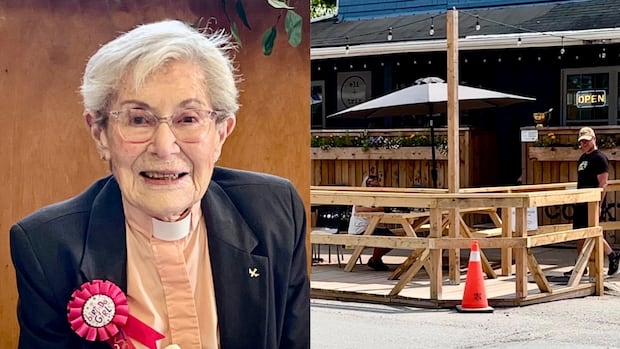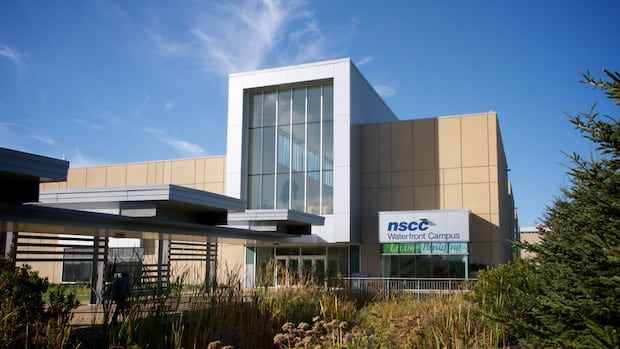Summer “grieving camps” are designed to help children cope with loss

A hospice in Truro, NS, is hosting two free “mourning camps” this summer for children who have experienced the loss of a loved one.
The camps are for children from 6 to 12 years old.
Stacey Harrison, executive director of the Colchester East Hants Hospice Society, told CBC Radios Information Morning Nova Scotia the goal is to help children who have experienced loss share their experiences and connect with others.
Harrison said the camps will include education and activities to help children develop their coping skills.
Harrison’s conversation with Information morning host Portia Clark has been edited for clarity and length.
Information morning – NS7:58Hospice in Truro is hosting two bereavement camps for children this summer
Stacey Harrison, executive director of the Colchester East Hants Hospice Society, talks about free day camps for grieving children. The summer camps give children a chance to connect and share their feelings about the challenges of losing a loved one.
Isn’t this the first time you’ve been involved in grief camps?
To give credit where credit is due, Bailey’s Hope Society did very similar camps from 2003 to 2010, and when they stopped operating, our organization got the framework of what those camps look like, as well as any leftover supplies in terms of craft.
We just put them on hold. Bereavement and bereavement have always been part of what we do, but in 2019-2020 we made a strategic focus and that became what we did. This was the perfect opportunity to re-enter the camps.
Why this specific age group of children between the ages of six and twelve?
It was one of the age demographics that we felt was not supported in the same way as some of the others.
We have done peer led grief groups and supported other organizations within the schools.
But this [age group] in particular there was one that we really felt needed a little more support.
That is why we have made the decision to offer these two camps for that age group this summer.
Where are the camps? Tell us a little more about them.
We have two this summer.
One will be established from our office in Truro in July and the other we will be working with the Family Resource Center in Elmsdale.
They will be four days, a combination of a little bit of education component, physical activity and some of those coping skills and activities that will allow the kids to be really creative and bring memories of those activities from the person they lost in their life.
We are very excited about the reintroduction.
What are some of those ways to talk about grief or introduce the subject of grief without being so overt?
They are certainly big emotions.
I am not a social worker and have no clinical background, but we have two wonderful ladies on our team who do. They’re going to take charge.
One of the things we’re going to do is really understand who the participants are.
A discussion takes place with the child and the family. We’re going to get a really good understanding of who’s passed away in their life – what big emotions are they dealing with and what are some of those things that we think we need to know to make it the best experience for them – that’s a key part of it.
And then it just becomes a normal conversation with them.
There will be the shared experiences with the others in the group and just really participating in the conversation and meeting them where they are.
Based on what happened to Bailey’s Hope Society in these camps in the past, how does this develop over the course of the course in terms of interacting, sharing experiences, and really incorporating some healing into the curriculum?
They did a fantastic job capturing data.
There was a pre- and post-assessment that was done and we’ve been lucky to get those metrics.
When you look at it, the difference between is true [participants] felt emotional at the beginning and where they felt at the end it was pretty dramatic.
We’re taking that model and incorporating that into the camps as we reintroduce and a lot of that is just learning.
Our team has never done this before.
We’re really looking forward to taking those lessons from what we’ve done through our programs and services, what Bailey’s Hope has done, and then learning from the kids themselves and where they are now.
What about not processing grief? Some kids might get there and really don’t want to be too open about it.
That’s one of the things we’ll identify in the review. We definitely want them to feel comfortable and want to be here.
We are limited to the number of participants we can accommodate.
Part of the reason we want to do those assessments in the beginning is that we know that grief groups aren’t going to be right for everyone.
But what we can learn from that is what would work for some individuals who may not be as open to joining a group, and that will also be part of how we continue to develop our programs and services.
Is there still time for people to apply?
Our office takes all referrals that come in and the calls and answer all questions.
Then it goes to our social work team and they will take that next step to make sure they fit and answer any additional questions.
In any case, get in touch, and while we have limited capacity, we will use all that information and move on to ways we can support in other ways.
MORE TOP STORIES



